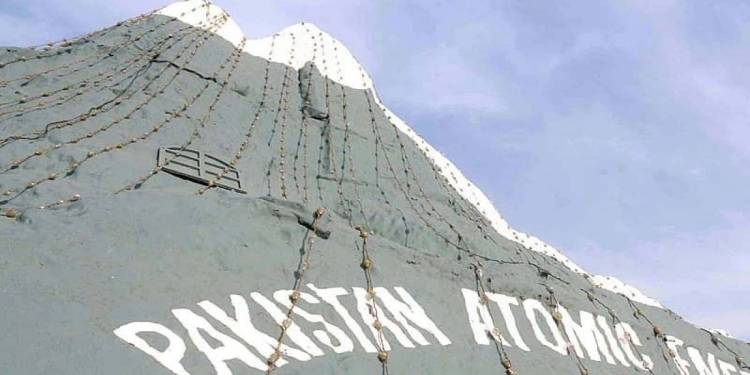
The nation is enthusiastically commemorating Youm-e-Takbeer on Sunday, the momentous day when Pakistan successfully conducted nuclear testing in the hills of Chaghai 25 years ago.
By conducting the nuclear tests, Pakistan strengthened its position in the region and restored the balance of power by becoming the region's and the Islamic world's first nuclear-armed country.
Youm-e-Takbeer, which guaranteed unbeatable defensive capabilities and regional security via power equilibrium, is seen as a watershed moment in Pakistani history.
In his address on the occasion, Prime Minister Shehbaz Sharif reiterated that the national defenses and sovereignty were impenetrable. He said that Youm-e-Takbeer was a clear statement that "no compromise over the country's sovereignty and defense," adding that it served as a reminder that the country will not back down from whatever sacrifice is made to protect.
He said that the nation values its freedom, dignity, and national security above all else, and no one has the guts to take them away.
In order to achieve economic independence and sovereignty, he encouraged the country to proceed in the same spirit as that which was demonstrated on Youm-e-Takbir.
The prime minister praised the patriotism of former leaders Zulfiqar Ali Bhutto, who started Pakistan's nuclear project, and former prime minister Nawaz Sharif, who conducted nuclear tests under intense pressure from outside sources.
The prime minister also praised the efforts of Dr. Abdul Qadir Khan and all other scientists, engineers, and people who helped establish a nuclear deterrent. He also thanked Saudi Arabia and other friendly countries for supporting Pakistan during the economic restrictions brought on by the atomic project.
The Inter-Services Public Relations (ISPR) director general emphasized the significance of the day by saying the armed services pay rich honor to the brilliant minds who conceived and achieved nuclear deterrence despite challenges.
"We honor the engineers and scientists who made the impossible possible. The media branch of the military said, "Long live Pakistan."
By conducting the nuclear tests, Pakistan strengthened its position in the region and restored the balance of power by becoming the region's and the Islamic world's first nuclear-armed country.
Youm-e-Takbeer, which guaranteed unbeatable defensive capabilities and regional security via power equilibrium, is seen as a watershed moment in Pakistani history.
In his address on the occasion, Prime Minister Shehbaz Sharif reiterated that the national defenses and sovereignty were impenetrable. He said that Youm-e-Takbeer was a clear statement that "no compromise over the country's sovereignty and defense," adding that it served as a reminder that the country will not back down from whatever sacrifice is made to protect.
He said that the nation values its freedom, dignity, and national security above all else, and no one has the guts to take them away.
In order to achieve economic independence and sovereignty, he encouraged the country to proceed in the same spirit as that which was demonstrated on Youm-e-Takbir.
The prime minister praised the patriotism of former leaders Zulfiqar Ali Bhutto, who started Pakistan's nuclear project, and former prime minister Nawaz Sharif, who conducted nuclear tests under intense pressure from outside sources.
The prime minister also praised the efforts of Dr. Abdul Qadir Khan and all other scientists, engineers, and people who helped establish a nuclear deterrent. He also thanked Saudi Arabia and other friendly countries for supporting Pakistan during the economic restrictions brought on by the atomic project.
The Inter-Services Public Relations (ISPR) director general emphasized the significance of the day by saying the armed services pay rich honor to the brilliant minds who conceived and achieved nuclear deterrence despite challenges.
"We honor the engineers and scientists who made the impossible possible. The media branch of the military said, "Long live Pakistan."

